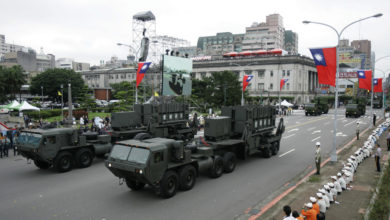Rich Countries Keep Discussion of Who Pays Off COP27 Agenda

NGermany’s rich nations blocked the attempts of egotiators from developing countries to get compensation for their damage due to climate change.
Talks that concluded in Bonn Thursday were a crucial item of the annual climate agenda. They set the scene for the United Nations-sponsored Conference of Parties (COP) in November. Two weeks of negotiations were required to put into practice the major commitments made last year at COP26, Glasgow. This was in preparation for COP27 which will be held in Egypt in November.
“Developed countries don’t want to pay a cent,” said Saleemul Huq, director at nonprofit International Centre for Climate Change and Development in Bangladesh. “They’re giving us dialog and that means talk, talk, talk with no action—that’s not acceptable anymore.”
Developing countries failed to put the issue — known in climate diplomacy jargon as “loss and damage” — on the official agenda for COP27. While technical, the step is crucial to make sure discussions happen at the highest level regarding climate financing for poor countries which aren’t responsible for warming the planet but bear the brunt of impacts such as floods and heat waves.
“Over the past two weeks, we have worked with all our might to make progress,” said Jennifer Morgan, a deputy German foreign minister and former head of Greenpeace International. “In the end we didn’t get as far as we wanted—we as the federal government also wanted more.”
According to the EU Commission, other countries and the EU recognize the importance of addressing the issues of loss and destruction and they have pledged to strengthen existing arrangements. The bloc’s executive body called on rich nations to deliver on the commitments they’ve made on climate finance.
Since 1992, the United Nations Framework Convention on Climate Change (UNFCCC) has been a subject of heated debate. While rich countries have recognized that global warming leads to disasters that are impossible to adapt to, they’ve never agreed that it warrants financial compensation. The topic is likely to be on the forefront of COP27 Sharm el-Sheikh. This will be the first COP27 held in Africa for over a decade.
“Major political decisions, notably on finance for loss and damage, need to be taken at COP27,” UNFCCC Executive Secretary Patricia Espinosa said in a statement. “We now need to ensure that Sharm el-Sheikh will truly be the place where important promises of the Paris Agreement are turned into reality.”
According to Alex Scott (program leader of climate diplomacy at E3G), the Bonn talks were primarily focused on technical issues and the delegate delegations ran out of negotiation room. Now they will require senior government officials to reinvigorate their political ambitions. Between now and November, there are many international events to accomplish this. These include the Commonwealth Heads of Government Meeting (Rwanda) and G-7 Summit in Germany. But if loss and damage doesn’t make it to the official COP27 agenda, the issue will stall and be delayed again, Scott said.
“Perhaps the most decisive outcome from these talks is that developed countries now realize that the chorus calling for solutions to loss and damage is only getting louder,” said David Waskow, director of international climate action at the World Resources Institute. “Now the pressure is on for leaders to pick up the slack and use upcoming diplomatic gatherings to deliver the political momentum that is needed ahead of COP27.”
Bonn officials were greeted by protestors from non-governmental organizations. Now, activists plan to take these demonstrations to their countries to exert pressure on their leaders in the next few months.
“We’re not going to let them get away with this,” Huq said. “We’ll keep on pressuring and they won’t be able to refuse giving any money forever.”
Talks were held on Article 6 of Paris Agreement. This article proposes market mechanisms for carbon to reduce greenhouse gas emissions. A compromise text was produced by delegations, which will be reviewed again at COP27 to continue negotiations.
However, this was no comfort to those who want more actions on damage and loss. “At this point in time, there’s no movement,” said Tasneem Essop, executive director at nonprofit Climate Action Network International. “We will leave here having to go back to people saying we have not got any outcomes that will address your needs.”
—With assistance from Iain Rogers and Ewa Krukowska.
Here are more must-read stories from TIME





